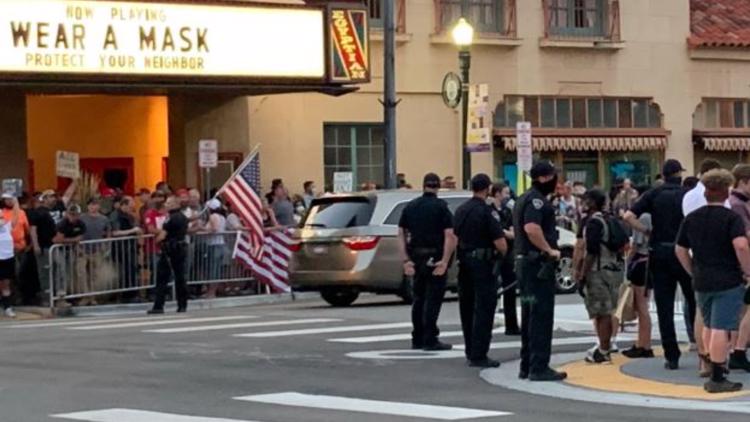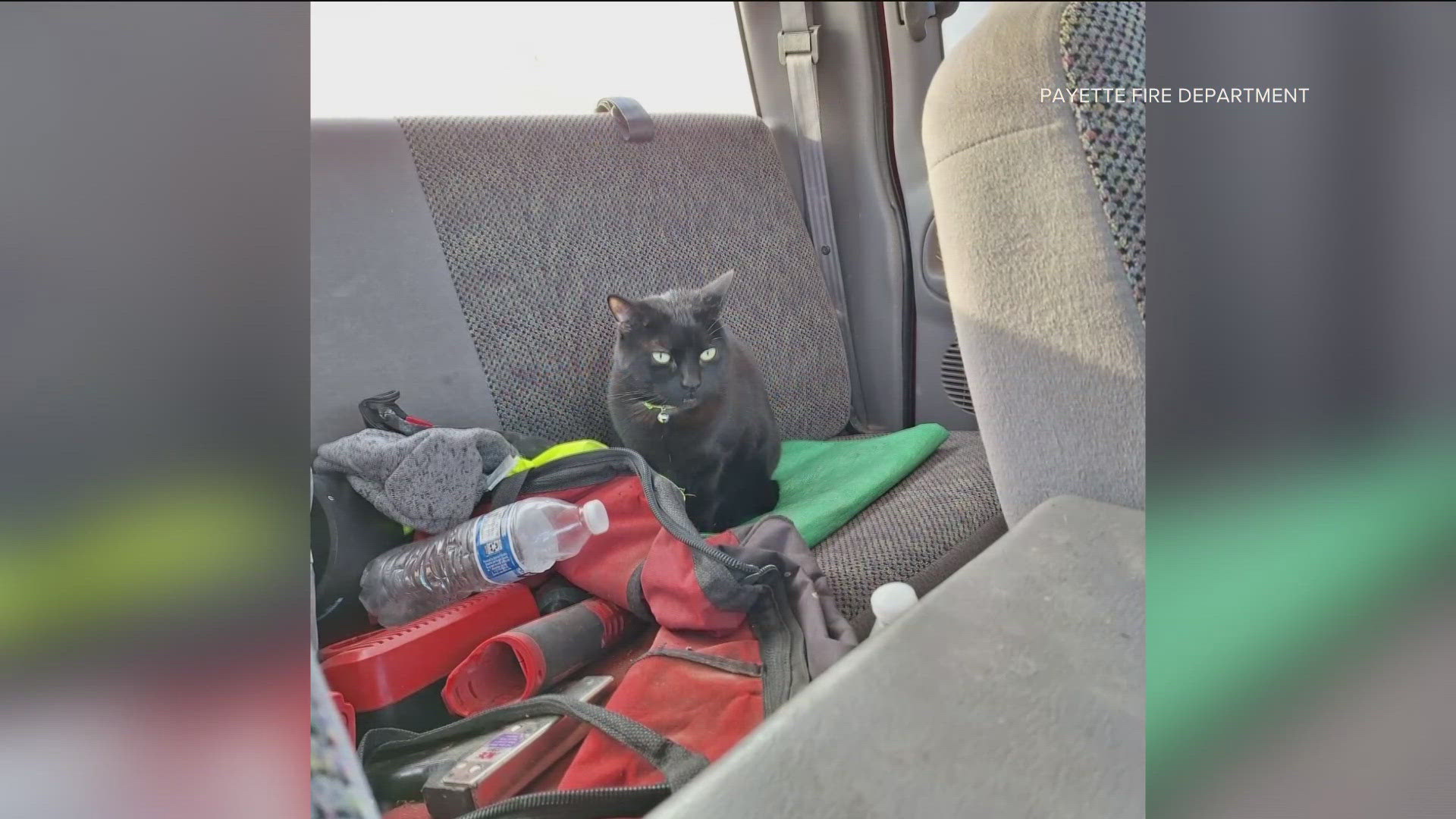BOISE, Idaho — Editor's Note: This article was originally published by the Idaho Press.
Local activist Ty Werenka is challenging a Boise noise control ordinance that he says is unconstitutional and a tool to “chill” free speech, after Boise Police officers ticketed him for using a megaphone during an April protest in downtown Boise.
On April 17, officers cited Ty Werenka, who marched to protest the April 11 killing of Daunte Wright by a Brooklyn Center (Minnesota) Police officer. The $156 ticket noted that Werenka violated a noise control ordinance because he used a megaphone during the march. Now the activist is challenging the citation in court, alleging the city code violates First Amendment protections on speech.
“Regardless of your political persuasions or expressions or how you vote, being able to express yourself politically is very, very important,” Werenka told the Idaho Press. “Freedom of political speech is valuable; it’s inherently valuable, and it’s practically valuable.”
Werenka, who is Black, said the protest was meant to “bring attention to the injustice that happened” to Wright, a Black man shot by a white police officer. The Minnesota officer, Kim Potter, may have mistaken her gun for a Taser before firing at Wright as officers attempted to arrest him for an outstanding warrant, the Associated Press reported.
The Boise march, one among many across the U.S. following Wright’s death, was a “noise protest,” meaning protesters used pots and pans and other noisemakers to ensure their message didn’t go unnoticed, Werenka said. For his part, Werenka used a megaphone to amplify protest chants such as “justice for Daunte Wright,” “Black lives matter” and “no lives matter until Black lives matter,” he said.
The march route started at the Anne Frank Human Rights Memorial, then traveled up Capitol Boulevard to the Statehouse before snaking down Eighth Street and back to the memorial, where it ended. Officers approached Werenka as he was preparing to leave the event and told him he was being cited for violating the noise ordinance, the activist said.
Officers cited Werenka under city code 5-7-3, which outlaws the use of a “loud amplification device” within earshot of residences and public right-of-ways, unless a permit is first obtained from an authorized government entity.
The code, adopted in 1952, has yet to comport to modern constitutional interpretations, argues Richard Eppink, Werenka’s pro bono attorney. The noise control code stipulates government authorization must be obtained to use a megaphone, but it does not prescribe standards for government agents who grant that authorization: This represents a prior restraint on speech, which is unlawful according to Supreme Court interpretations of the First Amendment, Eppink argued in a legal brief.
“The Boise City Code grants government agents unbridled discretion to choose when sound amplification is allowed,” he wrote.
On these grounds, Werenka asked the Fourth Judicial District Court to dismiss the citation. Meanwhile, city attorneys appear poised to defend it. They have requested time to prepare a legal brief in response to the motion to dismiss, Eppink said. A court hearing is scheduled for Wednesday.
Werenka said defending the citation would be “frivolous” and a “big waste of time, energy and money.”
“Not only is maintaining these rights important for everybody, but it’s also important for everybody to be fiscally responsible with the government’s money,” he said.
Ryan Suppe is the Boise City Hall and Treasure Valley business reporter for the Idaho Press. Contact him at 208-344-2055 (ext. 3038). Follow him on Twitter @salsuppe.



